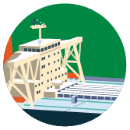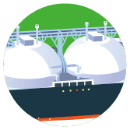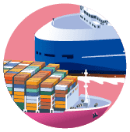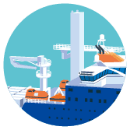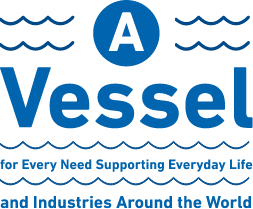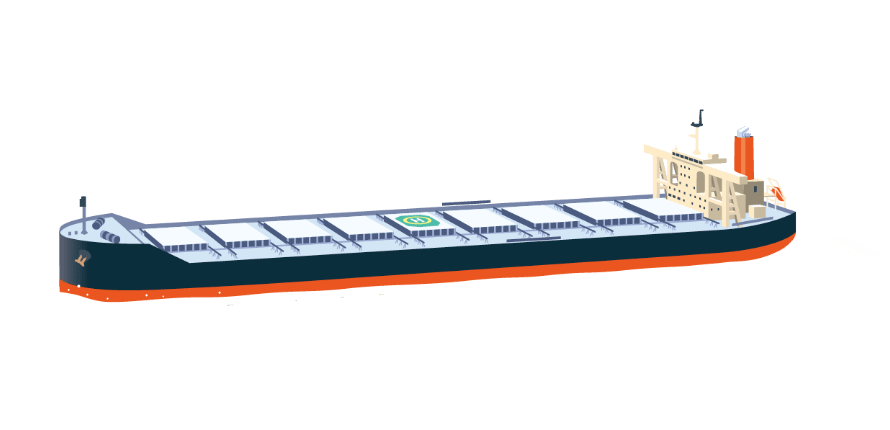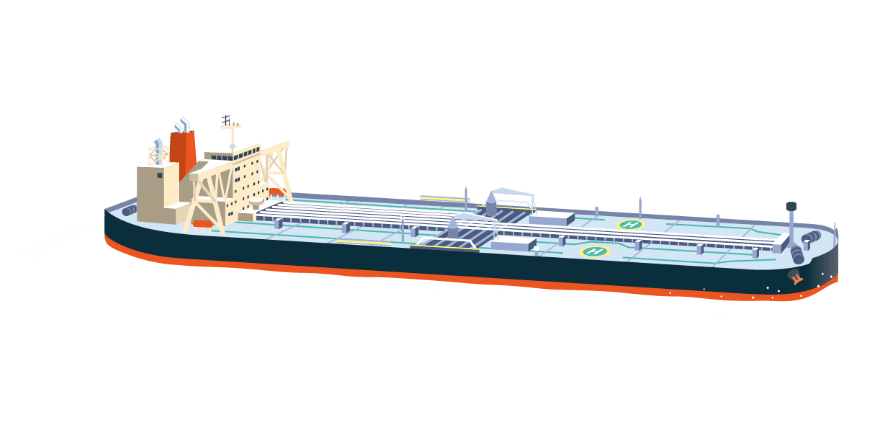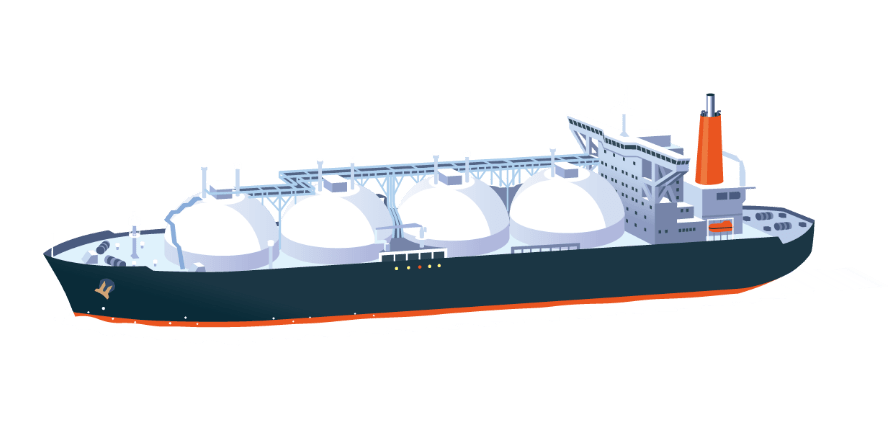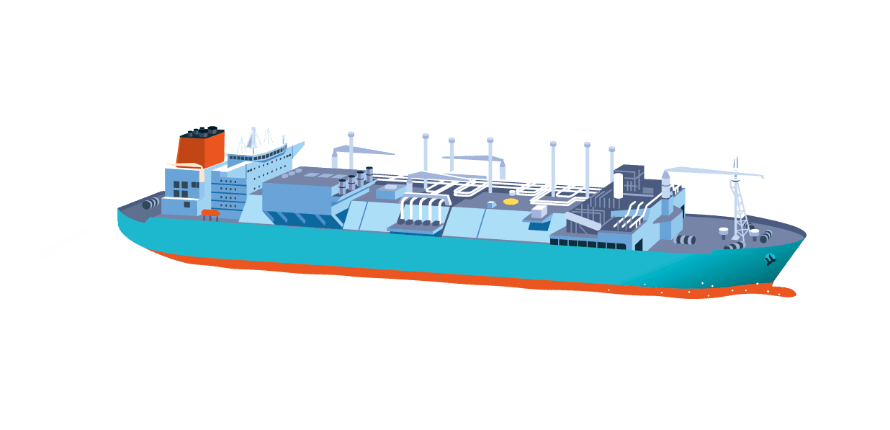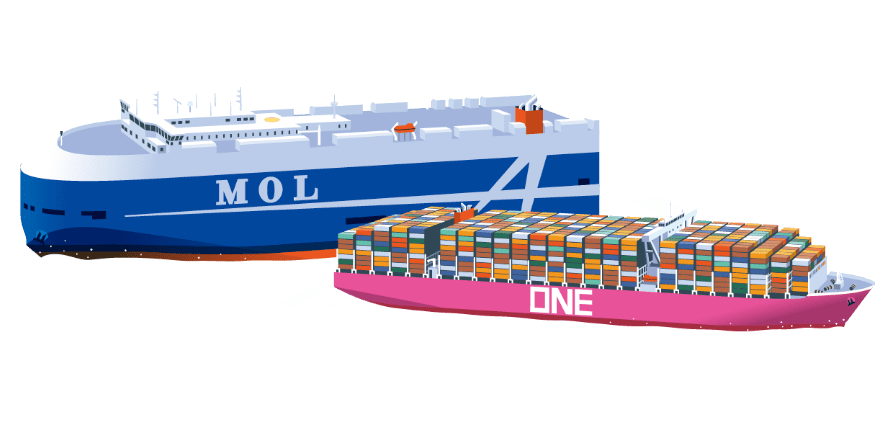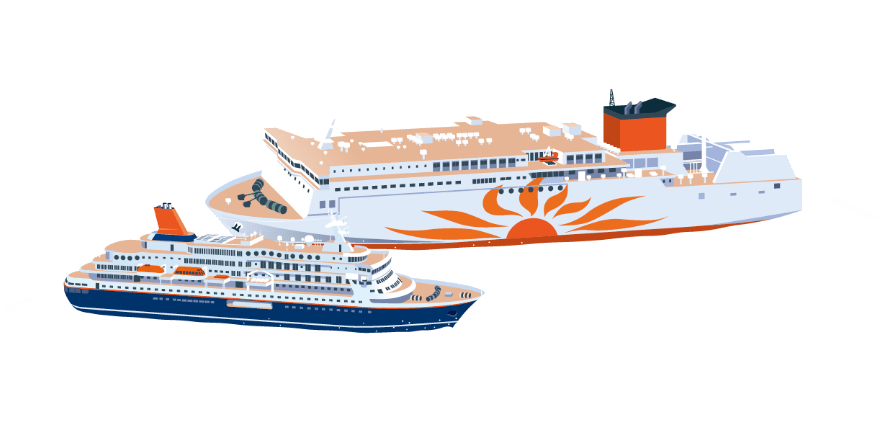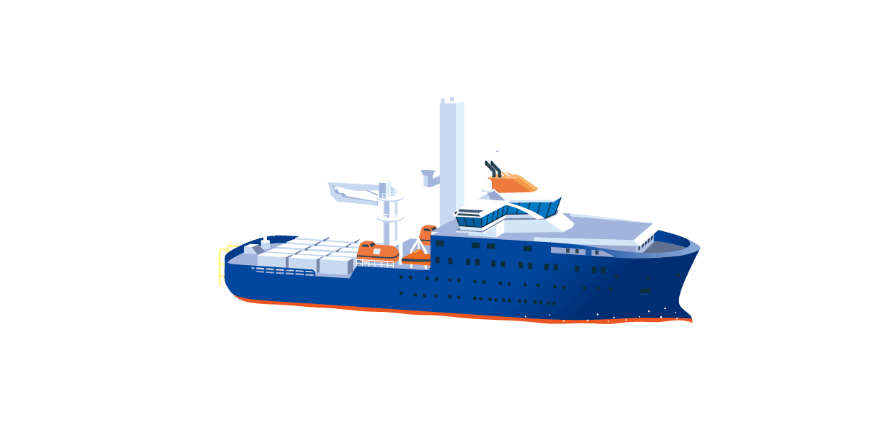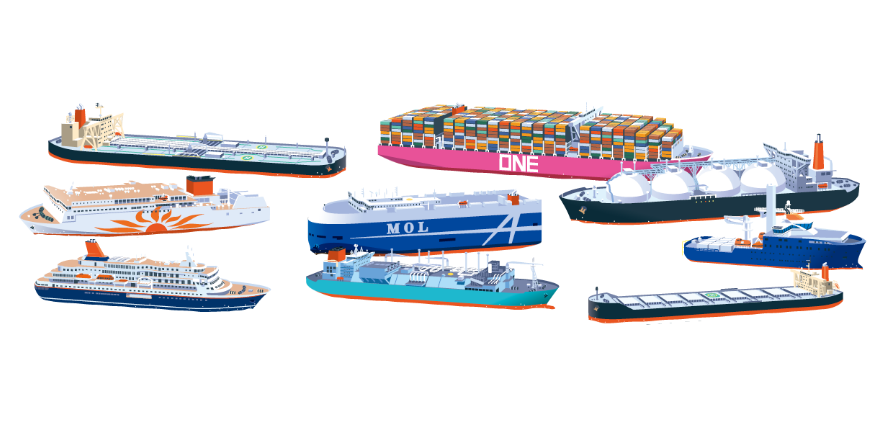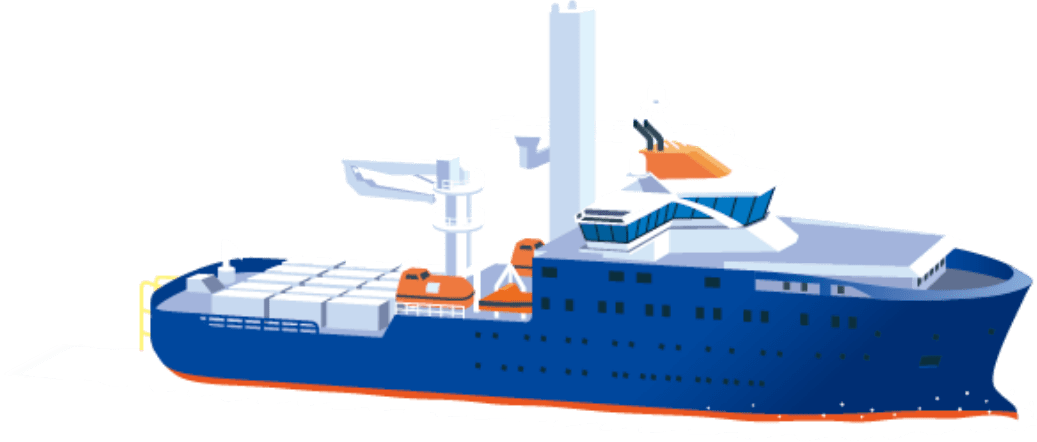
Ships bring efficiency and convenience to the movement of people and cargo.
Of course, ships come in all types, from yachts to fishing boats and military vessels.
But the ships that transport people and cargo are called “merchant vessels”
Just about everything we rely on in our everyday lives arrives by ship.
99% of commodities, energy resources, and materials imported to and exported from Japan – an island nation surrounded
by the sea – travels by merchant vessels.
It’s no exaggeration to say that merchant ships are indispensable to our lives.
to the movement of people and cargo.
Of course, ships come in all types,
from yachts to fishing boats and military vessels.
But the ships that transport people
and cargo are called “merchant vessels”
Just about everything we rely on
in our everyday lives arrives by ship.
99% of commodities, energy resources,
and materials imported to and exported from Japan
– an island nation surrounded
by the sea – travels by merchant vessels.
It’s no exaggeration to say
that merchant ships are indispensable to our lives.

Bulkships transport huge volumes of cargoes such as iron ore, coal, grain, salt, aluminum, and copper ore without packing or packaging.
These vessels are called “bulkers,” “dry bulkers,” “bulk carriers,” or “dry bulk ships,”
since they transport “dry cargo” in “bulk.” Bulkships vary widely in size and configuration,
depending on the cargo they carry and the characteristics of the ports where they call.
Bulkships transport huge volumes of cargoes such as iron ore, coal, grain, salt, aluminum, and copper ore without packing or packaging.
These vessels are called “bulkers,” “dry bulkers,” “bulk carriers,” or “dry bulk ships,”
since they transport “dry cargo” in “bulk.” Bulkships vary widely in size and configuration,
depending on the cargo they carry and the characteristics of the ports where they call.

Tankers transport crude oil, which is the world’s primary energy source, refined petroleum products like gasoline,
and other liquid cargoes such as chemical products.
Tankers, of course, are built to transport oil, but can also serve as temporary offshore oil storage terminals,
because the tanker is composed of multiple tanks.
Tankers transport crude oil, which is the world’s primary energy source, refined petroleum products like gasoline,
and other liquid cargoes such as chemical products.
Tankers, of course, are built to transport oil, but can also serve as temporary offshore oil storage terminals,
because the tanker is composed of multiple tanks.

Tankers that transport liquefied natural gas are called LNG carriers.
These vessels boast a range of advanced, versatile technologies – tanks made of special material to keep the cargo at an ultra-low temperature,
emergency shut down devices to prevent incidents during cargo handling operations, and turbine engines that can run on vaporized gas.
Tankers that transport liquefied natural gas are called LNG carriers.
These vessels boast a range of advanced, versatile technologies – tanks made of special material to keep the cargo at an ultra-low temperature,
emergency shut down devices to prevent incidents during cargo handling operations, and turbine engines that can run on vaporized gas.

Our vessels play active roles in marine resource development and offshore energy production.
For example, some vessels are berthed offshore to produce crude oil and gas, and others serve as LNG receiving terminals, and more.
This section introduces a wide array of vessels involved in our offshore business.
Our vessels play active roles in marine resource development and offshore energy production.
For example, some vessels are berthed offshore to produce crude oil and gas, and others serve as LNG receiving terminals, and more.
This section introduces a wide array of vessels involved in our offshore business.

Bulkships carry resources and tankers carry energy. Here, we have other types of vessels that carry finished products.
This section introduces car carriers that transport automobiles and containerships that carry a wide variety of cargoes such as apparel,
appliances, and other items we use every day.
Bulkships carry resources and tankers carry energy. Here, we have other types of vessels that carry finished products.
This section introduces car carriers that transport automobiles and containerships that carry a wide variety
of cargoes such as apparel,
appliances, and other items we use every day.

The oldest means of transportation for long-distance travel is the ship.
Today, cruise ships ply routes around Japan and all over the world, providing a leisurely escape that allows people to “enjoy time and space,”
as well as a means of travel.
In addition, ferries have grown with the spread of car and truck transportation,
and play key roles in Japan’s domestic logistics network. But like cruise ships, ferry travel also opens up new horizons
in leisure-time activity, an element of the “Casual Cruise” concept.
The oldest means of transportation for long-distance travel is the ship.
Today, cruise ships ply routes around Japan and all over the world, providing a leisurely escape that allows people to “enjoy time and space,”
as well as a means of travel.
In addition, ferries have grown with the spread of car and truck transportation,
and play key roles in Japan’s domestic logistics network. But like cruise ships, ferry travel also opens up new horizons
in leisure-time activity, an element of the “Casual Cruise” concept.


